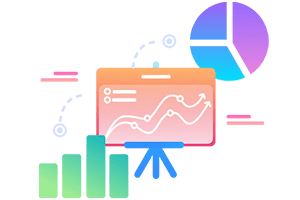Tax Return And Deduction Checklist For Train Driver

Did you know that many train drivers miss out on hundreds or even thousands of dollars in tax deductions each year?
As a vital part of Australia’s transportation network, train drivers face unique work-related expenses that can significantly impact their tax returns.
So we decided to share a blog that will take you through what you can claim as a train driver, what records to keep, and what to avoid, ensuring a smooth tax return process.
Understanding Your Income
Before diving into deductions, it’s crucial to have a clear understanding of your taxable income.
As a train driver, your income typically consists of:
- Base salary
- Overtime pay
- Allowances (e.g., meal allowances, travel allowances)
- Bonuses or incentives
Your employer in Australia will issue you an income statement or the so called ‘group certificate’, that will show you your total taxable income for the financial year. If you are self-employed and if you contract, you will get your payment summaries on Pay As You Go or PAYG from each of your clients. These amounts should also be checked to ensure that they are correct so that there are no complications with your tax return.
Train Drivers’ Salaries And Allowances
To get to the deductions, make sure that your income statement is correct. If you are an employee or a contractor you would be able to get details of your total tax amount through your group certificate or PAYG payment summary and this would include your wages, allowances, tips and commissions. It is necessary to check this information because failure to do so may lead to some tax return filing problems, such as delays or inaccuracies.
What Deductions Can Train Drivers Claim?
It is also possible to get tax deductions on other expenses that are incurred while performing certain tasks as a train driver. And when claiming this, one must remember that the expense must have been made directly by the individual and not reimbursed from the employer and the records of the expense kept are clear.
Here’s a comprehensive checklist of common deductions train drivers can claim:
| Expense Type | Deduction Criteria |
|---|---|
| Car Expenses | If you travel between multiple work locations, such as from the depot to train stations, or between different jobs. |
| Uniform Expenses | For buying, repairing, or cleaning clothing that is part of your work uniform or has a company logo. |
| Medical Exams | Costs for mandatory medical examinations or assessments required for your job. |
| Licence Renewal Fees | Renewal fees for licences, regulator permits, and certificates needed to operate a train. |
| Phone and Internet Costs | If you use your own phone or device for work and are not reimbursed by your employer (records required for claims over $50). |
| Personal Tools or Equipment | If you purchase tools like spanners, you can claim the cost as long as you use them for work purposes. |
| Self-Education Costs | Expenses for attending courses or training directly related to your job, such as learning about shunting, coupling, or uncoupling. |
| Sun Protection | Items like sun hats, sunglasses, and sunscreen if your job requires working in outdoor conditions. |
| Travel and Accommodation | Travel expenses, including accommodation and meals, if you’re required to stay overnight for work-related reasons. |
| Taxi or Ride-Sharing Costs | Costs incurred for rides if you’ve reached your maximum driving hours or need to travel between work locations as required by your employer. |
What Deductions Can’t Be Claimed?
While there is a wide range of deductions available for train drivers, not every expense related to your job qualifies for a tax deduction.
Below are some common non-deductible expenses:
- Travel to and from work: Commuting from home to your regular place of work cannot be claimed.
- Non-uniform clothing: Plain clothes like pants or shoes, even if bought specifically for work, are not deductible.
- Pre-employment medicals: The cost of any medical examinations required before you are employed cannot be claimed.
- Meals during work: Regular meals and snacks consumed during your shift are not deductible, even if your employer provides a meal allowance.
- Entertainment devices: Items like CDs or talking books used to help with fatigue are not considered work-related expenses.
Record-Keeping Essentials For Train Drivers
You must keep receipts and other forms of documentation to substantiate any deductions you claim.
Here are some important things to remember about record-keeping:
- Digital Receipts: Physical receipts aren’t necessary; you can keep a digital copy, such as a photo or email receipt, as long as it includes:
- Name of the supplier
- Amount spent
- Nature of goods or services
- Date of payment and receipt
- Less than $10 expenses: You don’t need to have a receipt for those, so long as the running total of these lesser expenses does not exceed $200.
- Detailed Records for Claims Over $50: You must maintain detailed records of any phone and internet claims over $50. Examples include keeping itemised phone bills.
When To Seek Professional Help?
While this guide covers many aspects of tax deductions for train drivers, individual circumstances can vary.
Consider consulting a tax professional if:
- You have complex work arrangements (e.g., multiple employers, contracting)
- You’re unsure about the eligibility of certain expenses
- You want to maximise your return and ensure compliance with tax laws
Filing your tax return is never easy, but you needn’t go it alone. At KPG Taxation, we pride ourselves on helping train drivers identify all possible deductions to make sure their tax return is accurate and stress-free.
Let our tax expert team handle the complexities while you focus on what really matters-your work. For professional help, get in touch with us today and receive your maximum refund with ease.
- Categories
- Tax Deductions

Focus On Growing Your Business, Leave The Accounting On Us!
- Income Tax : File your taxes & get the best claims & returns.
- Accountancy : Hire expert accountants to manage your transactions.
- Bookkeeping : Let us handle your record books and expense reports.
- Business Advisory : From company set-up to payroll, we handle it all.



